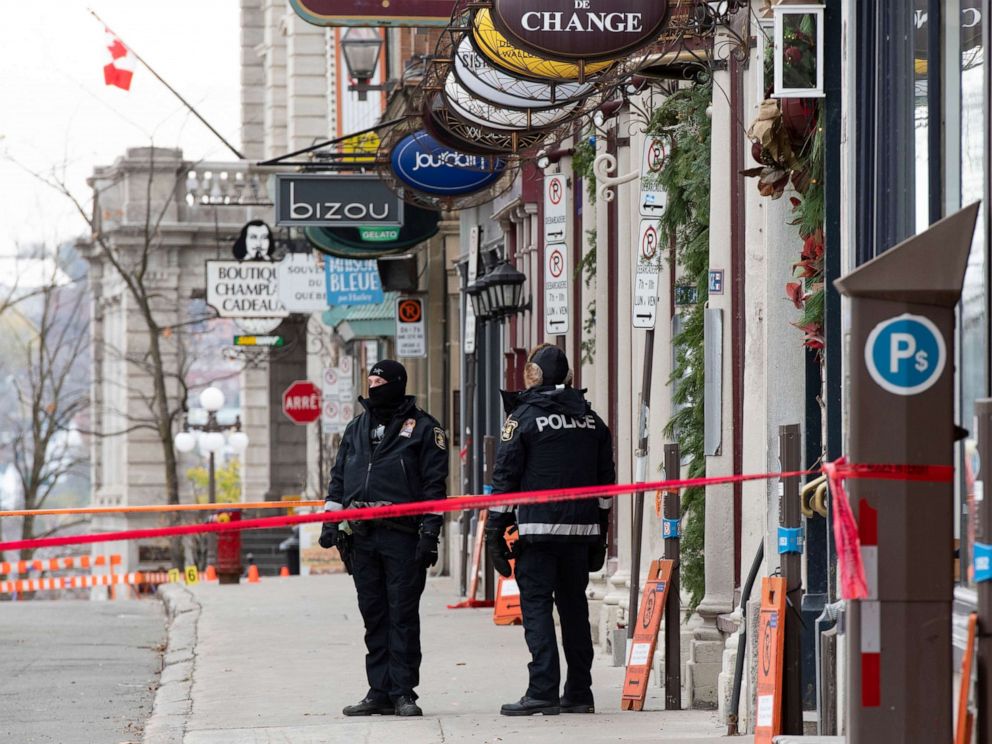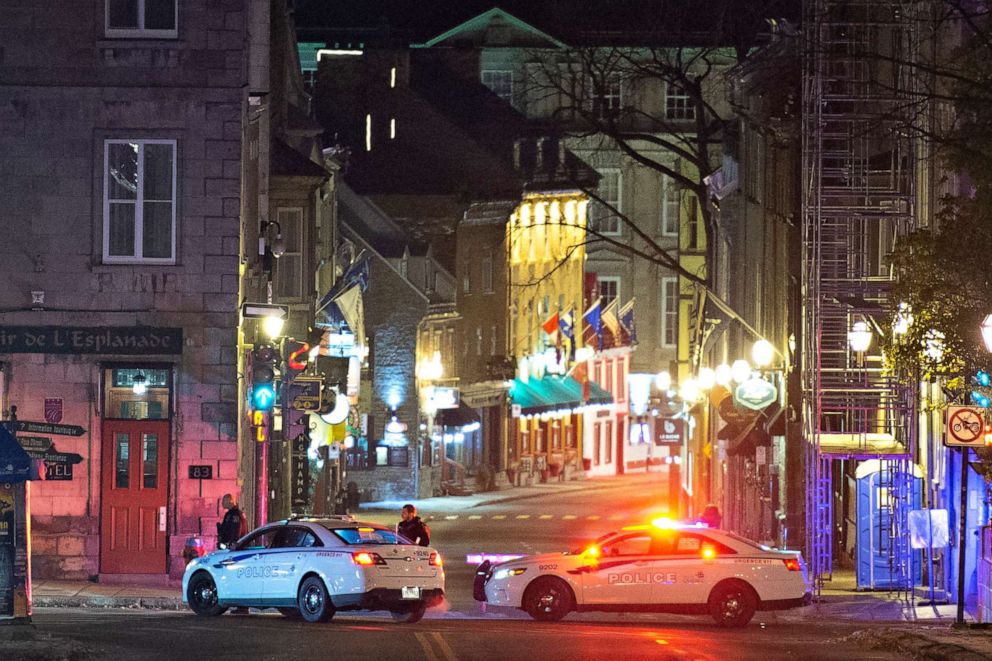Suspect in medieval costume wielding samurai sword kills 2, injures 5 in Quebec
Police said they do not believe the suspect is tied to any terrorist groups.
A 24-year-old man was arrested after he allegedly dressed in a medieval costume and used a samurai sword to randomly attack seven people, killing two, on Halloween night in Quebec City, Canada, authorities said.
The rampage came five years after the suspect allegedly made verbal threats to carry out such an attack during a medical contact that police were apparently not aware of until they started investigating Saturday night's rampage, Quebec City Police Chief Robert Pigeon said during a news conference on Sunday.
The suspect, whose name has not been released, is expected to appear in court later Sunday.
"The horror that took place in Quebec City has left the entire city, the entire province in bereavement this morning following this terrible night," Geneviève Guilbault, a member of the National Assembly in Quebec and the Minister of Public Safety for the Capitale-Nationale region, said during the news conference.
Pigeon said the suspect allegedly drove 155 miles from his home on the north shore of Montreal to Quebec City "with the intention of doing as much damage as possible."

The police chief said the preliminary investigation shows the suspect acted alone and that no evidence has been uncovered linking him to any terrorist groups.
"We have drawn the conclusion that yes it was premeditated," Pigeon said. "Somebody who puts on a costume and then moves to a particular location and targets victims as he moves along, I think this was premeditated."
The attack followed a stabbing rampage on Thursday at a church in Nice, France, that left three people dead. French authorities have called the deadly episode a "suspected terror attack" and are investigating whether the suspect, identified as Ibrahim Issaoui, a 21-year-old Tunisian, acted in concert with a terrorist group. At least five people were in custody on Sunday, stemming from the rampage, officials said.
The Quebec City attack unfolded about 10:30 p.m. Saturday in the historic Old Quebec neighborhood near the Parliament Building, Pigeon said.
Ambulance crews rushed to the scene to treat the victims as police mobilized a manhunt.
Pigeon said the suspect used a katana -- a Japanese samurai sword -- and attacked the victims at random.
He said the suspect was captured about 1 a.m. on Sunday near the Port of Quebec, where security officers spotted him and contacted the police.
"The investigation is ongoing and so I'll have to be limited in my comments, but it seems his motivations were personal," Pigeon said.
Pigeon added, "We now have information that over five years ago he (the suspect) had verbalized an intention similar to what he did yesterday. This information was collected in a medical contact over five years ago and it was not part of his legal background."

He said police are investigating 25 different crime scenes, including the suspect's car found parked in the area where the attacks occurred. Pigeon declined to comment on whether other weapons were found in the suspect's vehicle.
Pigeon said the five victims who survived the attack all suffered non-life-threatening wounds and that some were seriously injured.
"This is unbelievable, terrifying, an event that goes beyond logic, obviously," Quebec City Mayor Regis Labeaume said at the news conference.
He said that upon first hearing of the rampage, he immediately thought of the Jan. 29, 2017, mass shooting that occurred at a mosque in Quebec City that left six worshippers dead and nineteen injured. Canadian Alexandre Bissonnette pleaded guilty in 2019 to multiple counts of murder stemming from the mosque shooting and was sentenced to life in prison. Bissonnette claimed he acted alone and said at his sentencing hearing, "I am not a terrorist, I am not an Islamophobe."
Labeaume raised the issue that the suspect in Saturday's attack was suffering from a mental crisis, although Pigeon did not mention that as a possibility in his public briefing.
"I want to remind you that this brings back the question that this city is one of the safest in the world and it's difficult, almost impossible, to predict the consequences of the insanity here that's visibly coming from mental health problems," Labeaume said.




